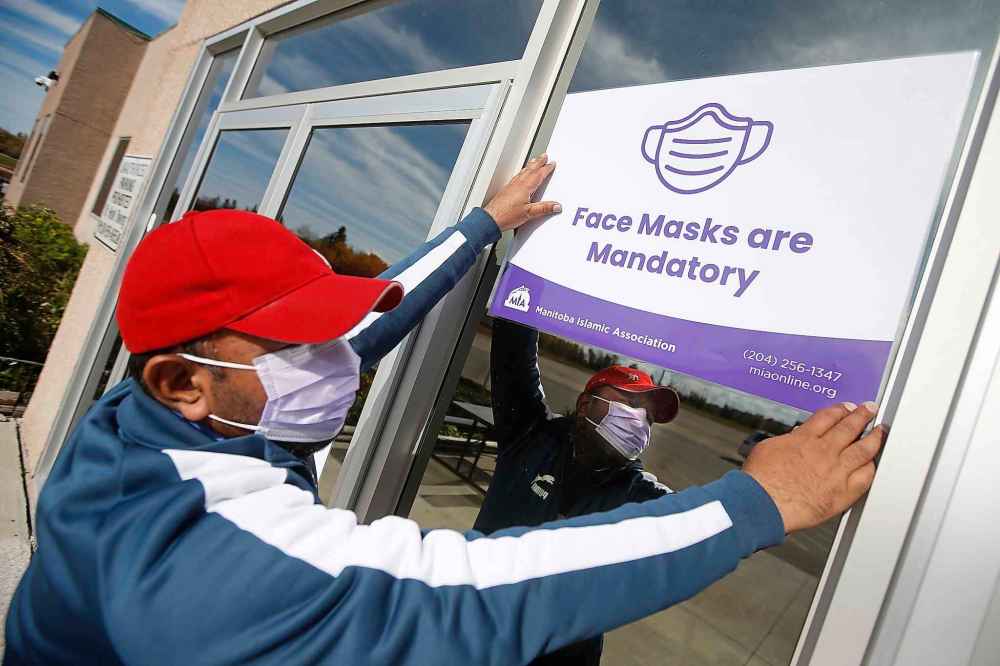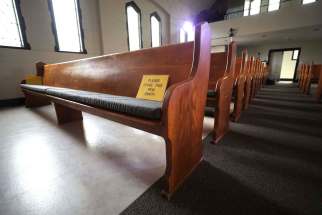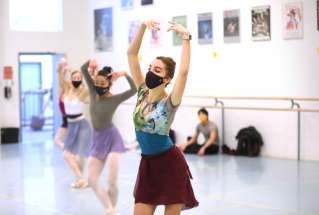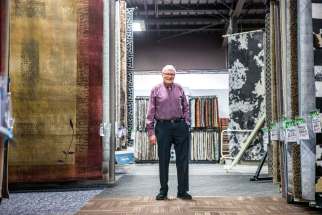Religious differences over pandemic orders
Read this article for free:
or
Already have an account? Log in here »
To continue reading, please subscribe:
Monthly Digital Subscription
$0 for the first 4 weeks*
- Enjoy unlimited reading on winnipegfreepress.com
- Read the E-Edition, our digital replica newspaper
- Access News Break, our award-winning app
- Play interactive puzzles
*No charge for 4 weeks then price increases to the regular rate of $19.00 plus GST every four weeks. Offer available to new and qualified returning subscribers only. Cancel any time.
Monthly Digital Subscription
$4.75/week*
- Enjoy unlimited reading on winnipegfreepress.com
- Read the E-Edition, our digital replica newspaper
- Access News Break, our award-winning app
- Play interactive puzzles
*Billed as $19 plus GST every four weeks. Cancel any time.
To continue reading, please subscribe:
Add Free Press access to your Brandon Sun subscription for only an additional
$1 for the first 4 weeks*
*Your next subscription payment will increase by $1.00 and you will be charged $16.99 plus GST for four weeks. After four weeks, your payment will increase to $23.99 plus GST every four weeks.
Read unlimited articles for free today:
or
Already have an account? Log in here »
Hey there, time traveller!
This article was published 06/11/2020 (1864 days ago), so information in it may no longer be current.
Nine months into the COVID-19 pandemic, Manitoba’s religious leaders don’t agree — or understand — how to interpret provincial guidelines around what constitutes a religious service.
Jews says funerals are an essential practice of their tradition; United Church of Canada recommends staying home to benefit everyone; Roman Catholics recently revised their COVID-19 guidelines to include a broader range of gatherings.
“I needed clearer responses from the province on singing and what exactly are religious services,” communications co-ordinator Daniel Bahuaud of the Archdiocese of Saint Boniface said about recent public health orders.
The updates — detailed in an eight-page document on its website, also shared with other Catholic dioceses — resulted from a recent 45-minute telephone conversation with Minister of Infrastructure Ron Schuler about the specifics of the provincial orders mandating group size for religious services. (Schuler is the minister responsible for connecting with religious groups.)
Bahuaud said Schuler considered prayer services, baptisms, catechism classes, Sunday school, Bible studies and retreats all falling under the category of religious services — as long as protocols such as wearing masks, proper sanitizing of hands and surfaces and social distancing are also followed.
“It changes things considerably. There is a sense of relief,” he said about events previously suspended in Roman Catholic parishes. “It gives us the wiggle room for everyday church life to continue.”
“It gives us the wiggle room for everyday church life to continue.”–Daniel Bahuaud
Since Nov. 2, Winnipeg and surrounding communities have operated under code red pandemic restrictions, which limits indoor and outdoor gathering size to five and participation in religious services to 100 people or 15 per cent of capacity, whichever is less.
The Southern Health region, including centres such as Steinbach and Portage la Prairie, moves to code red Monday.
The remainder of the province follows code orange rules, which limit religious services to 20 per cent or 250 people.
Requests for an interview with Schuler were referred to the health department. A spokesperson for the provincial government reiterated the health orders and did not reply to specific questions.
“We were trying to get clarity of the minimum requirements for what we feel is religiously necessary for a funeral,” said Rabbi Allan Finkel of Temple Shalom.
“We were trying to get clarity of the minimum requirements for what we feel is religiously necessary for a funeral.”–Rabbi Allan Finkel
Currently, Jews are limiting funerals to five people, reducing the number of pallbearers to five (from six), and keeping some mourners in their cars with windows open during the graveside service so they can participate in the mourner’s Kaddish prayer, said Finkel, who also represents the Winnipeg Council of Rabbis.
Finkel sent questions about funerals to Dr. Brent Roussin, chief provincial public health officer, but did not receive further clarification.
Winnipeg’s Muslims have moved all funerals to graveside services, and comply with the current restrictions of five mourners, said Urooj Danish of the Manitoba Islamic Association. Mosques are closed to Friday prayers.
“It (attending funerals) is considered a religious practice because it reminds us that death is the only thing we are sure about,” she said.

When it comes to religious services, Lutherans interpret that to mean Sunday morning worship and regularly scheduled weekday gatherings, said Bishop Jason Zinko of the Manitoba Northwestern Ontario Synod of the Evangelical Lutheran Church in Canada.
This week, Zinko encouraged Manitoba churches in the red zone to move gatherings online to limit the spread of COVID-19.
“For us, care of our communities and the safety of neighbourhoods is more important than our need to gather,” Zinko wrote in an email message. “We are doing our part to limit and eradicate this virus.”
“For us, care of our communities and the safety of neighbourhoods is more important than our need to gather.”–Bishop Jason Zinko
With Christmas coming soon, United Churches have asked for more details from the province as they plan for multiple holiday services, said Rev. Shannon McCarthy, executive minister for three western Canadian regions of the United Church of Canada.
“We’re trying to clarify whether they think the Christmas Eve service is considered regular worship because it could potentially draw on people (from) all over the country,” she said of the risks associated with out-of-town visitors attending services.
faith@freepress.mb.ca
The Free Press is committed to covering faith in Manitoba. If you appreciate that coverage, help us do more! Your contribution of $10, $25 or more will allow us to deepen our reporting about faith in the province. Thanks! BECOME A FAITH JOURNALISM SUPPORTER

Brenda Suderman has been a columnist in the Saturday paper since 2000, first writing about family entertainment, and about faith and religion since 2006.
Our newsroom depends on a growing audience of readers to power our journalism. If you are not a paid reader, please consider becoming a subscriber.
Our newsroom depends on its audience of readers to power our journalism. Thank you for your support.
The Free Press acknowledges the financial support it receives from members of the city’s faith community, which makes our coverage of religion possible.








